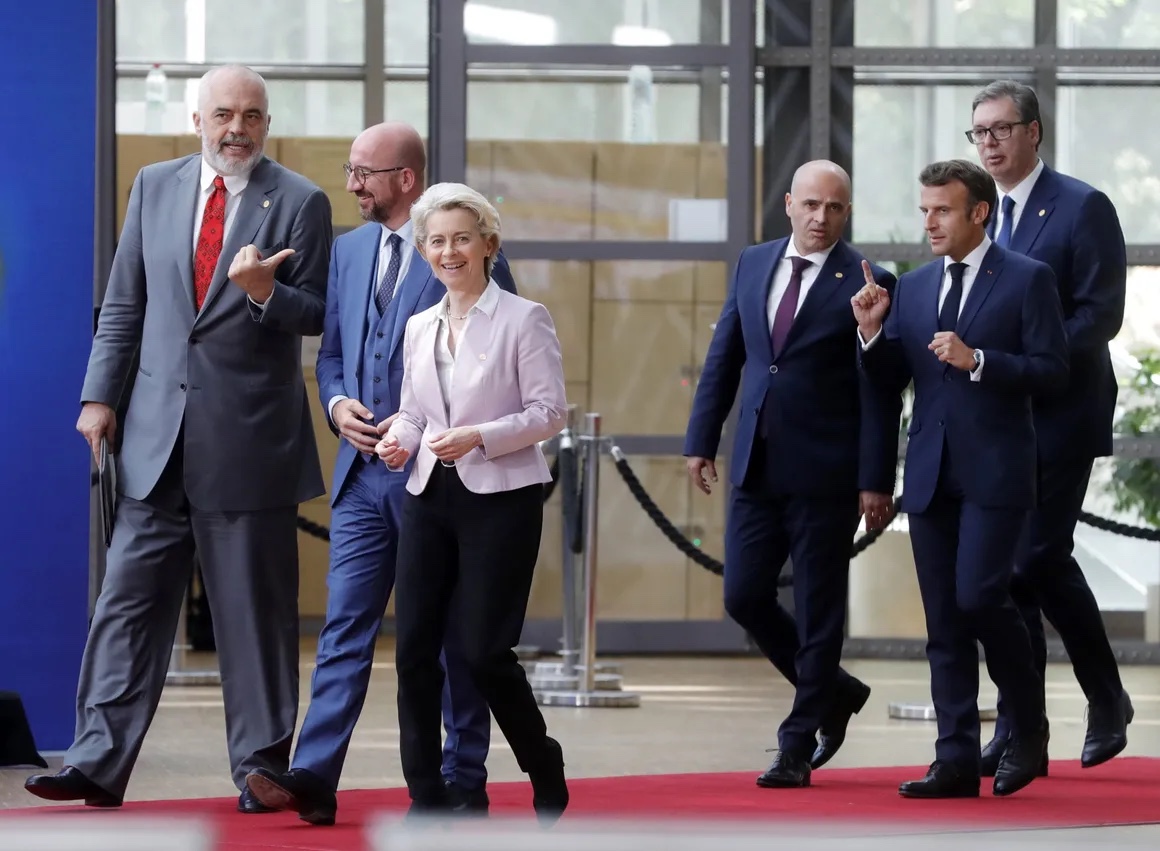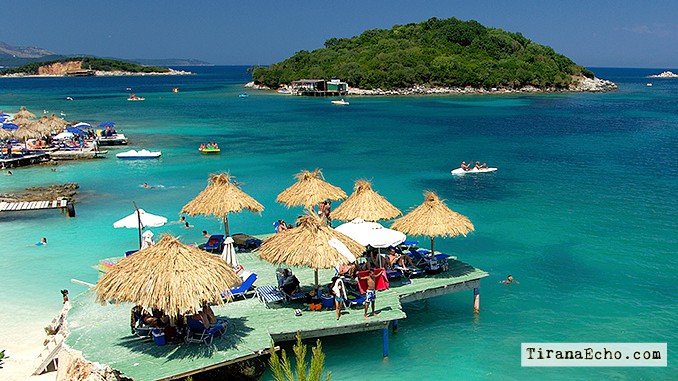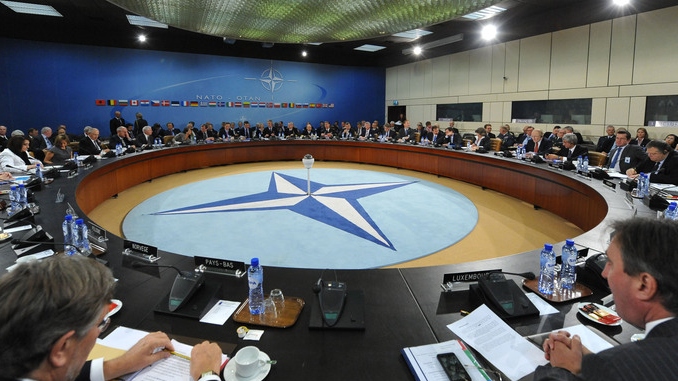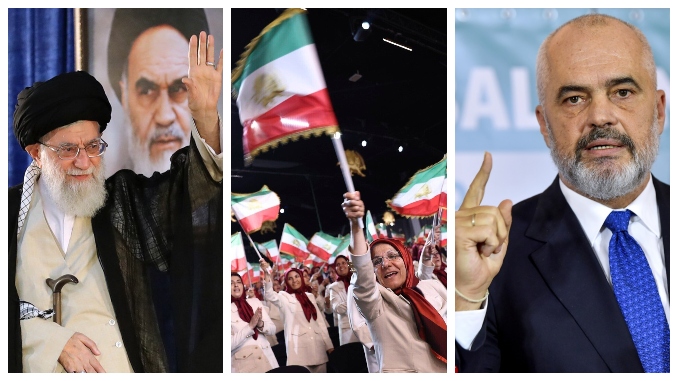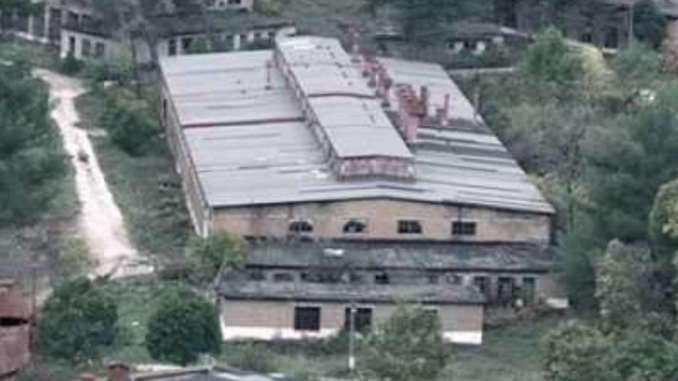Macedonia sinks deeper into post-election limbo
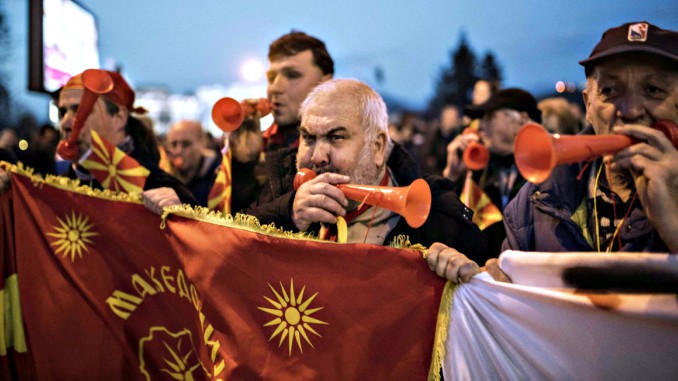
SKOPJE — An EU-backed election meant to end a crisis in Macedonia has led to a deeper one, putting a dangerous strain on relations between the country’s two biggest ethnic groups.
The Balkan state’s president, Gjorge Ivanov, has defied calls from the EU, the United States and NATO to let the Social Democrats, mainly composed of ethnic Macedonians, and parties representing the large ethnic Albanian minority form a government.
Ivanov says such a coalition would threaten the unity of the country as the ethnic Albanian parties want greater rights for their community and a broader use of the Albanian language. But supporters of the would-be government say Ivanov is trying to protect the right-wing VMRO-DPMNE party, which ruled for the past decade and whose senior officials are under investigation on suspicion of large-scale illegal wiretapping and widespread corruption.
“He’s doing it because VMRO controls him and this is their order,” Radmila Šekerinska, the deputy leader of the Social Democrats (SDSM), said in her office at party headquarters.
Party leader Zoran Zaev has accused Ivanov of having “staged a coup” by refusing to nominate him as prime minister last week even though he has the support of 67 members in the 120-seat parliament, following the election back in December.

VMRO-DPMNE leader Nikola Gruevski, right, and Social Democrats leader Zoran Zaev, center, during constitutive session of the Macedonian parliament on December 2016 | Georgi Licovski/EPA
Macedonia, a country of some 2.1 million people, seceded peacefully from collapsing Yugoslavia in the 1990s but was shaken by an ethnic Albanian guerrilla insurgency in 2001. After mediation by the EU and NATO, the conflict was stopped before the country descended into all-out civil war.
Critics of VMRO-DPMNE blame the current crisis on party leader and longtime prime minister Nikola Gruevski. He was seen as a pro-EU technocrat when he took office in 2006 and EU leaders were grateful for his government’s help in closing down the western Balkan route for refugees and migrants last year. Austrian Foreign Minister Sebastian Kurz even spoke at a VMRO-DPMNE election rally last November.
But Gruevski has also come under fire from human rights activists and Western diplomats for an increasingly authoritarian rule, filling state jobs with party members and cracking down on critical media outlets and non-governmental organizations.
“Ethnic Albanians feel like second-class citizens in their own country” — Qashif Bakiu, University of Tetovo
“Gruevski and his close circle are ready to do anything, including encouraging an ethnic conflict, to escape jail,” said Jove Kekenovski, a political science lecturer and co-founder of the party who was expelled after criticizing the leadership.
But thousands of demonstrators, including many VMRO-DPMNE supporters, have marched through the center of Skopje in recent days in support of the president’s stance. Wearing scarves and ribbons of bright red and yellow, the colors of Macedonian flag, the protesters held anti-EU signs and sang patriotic songs.
Sonja Spasenovska, a 50-year-old economist, and her husband were among the demonstrators last Thursday night, having traveled 40 km from the western city of Tetovo, where the majority of residents are ethnic Albanian.
“We’d like to show the European Union that we’re a tough nation and we’ve always fought for our homeland,” Spasenovska said. “If we accept the Albanian platform, this would mean the end of the Macedonian nation.”

Supporters cheer during a campaign rally of Social Democrats leader Zoran Zaev | Robert Atanasovski/AFP via Getty Images
“I rejoiced when I heard the president’s announcement,” she added. “He’s the hero of the day.”
The protests have been mainly peaceful but two journalists were beaten and their camera destroyed as they tried to cover the demonstration last Tuesday.
Ethnic Albanians, who make up around a quarter of Macedonia’s population, say it is Ivanov who is threatening the unity of the country by blocking a government that would help their community feel more connected to the state.
“Ethnic Albanians feel like second-class citizens in their own country,” said Qashif Bakiu, an assistant professor of public law at the University of Tetovo.
Analysts see no sign of an end to political volatility. “Even if a new government is formed, it would face enduring challenges, including instability in the country and continuous pressure from Gruevski,” said Dimitar Bechev, a non-resident fellow at the Atlantic Council, a Washington-based think tank. “At the moment the country is highly divided and VMRO hasn’t lost its core support.”
Macedonia’s Watergate
The current crisis goes back to 2015, when Social Democrat leader Zaev accused Gruevski of orchestrating illegal surveillance of thousands of people, including judges, foreign diplomats, journalists and even members of his own cabinet. Zaev released recordings of the wiretaps that appeared to reveal widespread abuse of power and electoral fraud among senior officials.
Gruevski described the scandal as an attempt by an unnamed foreign intelligence service to destroy his party, claiming the recordings had been doctored.
After an initially hesitant reaction, the EU brokered a plan intended to get politics back on track. This included the establishment of a special prosecution unit to investigate the evidence provided by the wiretaps — and early elections, which finally took place at the end of last year, having twice been postponed.
Gruevski’s party won 51 seats in the election, two more than the Social Democrats. But he was unable to form a viable coalition. The Social Democrats and the ethnic Albanian parties then agreed on a governing alliance but Ivanov refused to give Zaev a mandate to form a new administration.

A polling station in Strumica during the general election in December last year | Tomislav Georgiev/AFP via Getty Images
EU foreign policy chief Federica Mogherini urged him to do a U-turn on a visit to Macedonia last Thursday. “I asked the president to reflect on the way forward to reverse his decision in the interest of all citizens in the country,” she told reporters in Skopje.
Russia, which has become increasingly vocal in Balkan affairs in recent years, has weighed in on the side of Ivanov, accusing the West of backing the creation of a “Greater Albania”.
VMRO-DPMNE suggests the best way out of the crisis would be a fresh election, held alongside local polls already scheduled for May.
“Regardless of whether we or SDSM form a government, it would have a very tiny majority and won’t be stable in the long term,” said Aleksandar Nikoloski, VMRO-DPMNE’s secretary for international cooperation, at the party’s new headquarters in Skopje.
Gruevski has suggested another way out of the impasse — that his party would support a Social Democrat-led government if it dropped the Albanian parties’ platform.
A long row of paintings in ornate golden frames depicting the history of Macedonia and the party adorn the long corridors of the building, which, like many others in the capital, has been given a neoclassical makeover.
The centerpiece in the party’s cafeteria depicts two men spraying a wall with graffiti that says “Long Live United Macedonia. Long Live VMRO” in bright red letters.
Gruevski has suggested another way out of the impasse — that his party would support a Social Democrat-led government if it dropped the Albanian parties’ platform. But the Social Democrats have so far shown no interest in that proposal.
Cvete Koneska, senior Europe analyst at London-based Control Risks Group, says Macedonia’s political crisis runs much deeper than a power struggle between the two main parties.

Macedonian President Gjorge Ivanov, right, during a campaign rally in Veles | Robert Atanasovski/AFP via Getty Images
“People don’t have trust anymore — whether it’s the police, the courts, the government, the political parties. This is a long-term problem that would affect much more society than whether Gruevski would be in government or not,” she said.
“You don’t know who is going to do what next, because it seems like no one is really following the Constitution and the law.”
Back at the Social Democrats’ headquarters, a thick yellow binder lies on the desk of deputy leader Šekerinska. It contains dozens of draft laws the party plans to present to parliament once it takes power. Unless Ivanov has a change of heart, it could be a long time before those bills make it out of the binder.
Source: Politico.Eu

